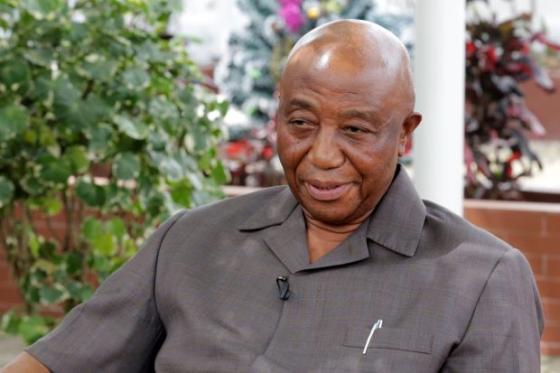Liberia: Haunted by the Past, Boakai to Review Concession Agreements when Elected President

The presidential candidate of Liberia’s opposition Unity Party and the country’s former vice-president, Ambassador Joseph Nyuma Boakai.
.... “Everything that affects this country must be reviewed, and we must make sure that it provides maximum benefits for Liberians,” Boakai said.
The standard bearer of the main opposition Unity Party, Joseph Boakai, has said that when elected president in October 2023, his administration will review all concession agreements to accrue the necessary benefits for Liberians.
According to the former Vice President, the review is meant to ensure that the country’s resources adequately benefit all citizens and the government.
“Everything that affects this country must be reviewed, and we must make sure that it provides maximum benefits for Liberians,” Boakai said at a year-end roundtable with editors and publishers at his residence recently.
Boakai’s desire to review the concession agreement seems borne out of the desire to right the wrongs of the past, including that of his Unity Party and the ruling Coalition of Democratic Change of President Weah.
During Boakia Unity Party's 12-year rule, an audit found that almost all the concessions awarded from 2009 to 2013 were not in compliance with the law.
In a report commissioned by Boakai and his boss, former President Ellen Johnson Sirleaf — the report found that only two out of 68 resource contracts worth US$8 billion were conducted properly.
Concessions granted in agriculture, forestry, mining, and hydrocarbons — including a lucrative deal with oil company Chevron — were either wholly or partially flawed, London-based accounting firm Moore Stephens, said.
This damning report was preceded by an equally damaging revelation of corruption and fraud in the forestry sector that became known as the Private Use Permit (PUP) saga — a situation that constrained the Sirleaf administration to place a moratorium on the commercial logging sector for years.
But the Moore Stephens report was a major blow to a government that had vowed to fight corruption, as it pointed to several flaws, including a lack of competitive bidding, non-stakeholder participation, lapses in procurement procedures, and missing documentation.
In what seemed to be an effort to clear this dark cloud that has since hung over the UP, Boakai noted, he will review every concession if elected in 2023.”
“You as a government need to know what is good for you and your people,” Boakai, who along with members of the 52nd and 53rd legislatures, was heavily criticized in the signing of those concession agreements,” said. “As a president, this is your country. If you don’t make the right decision in the interest of your people, no one will.”
The UP political leader appeared to have craftily absolved himself of any wrongdoing in ratifying those agreements when he said, “I was not an elected lawmaker in the senate so I could not vote unless there was a vote tie. And all the years I served as VP, I never broke a tie at the senate.”
The Liberian Constitution, he said, only places the VP in the senate as a neutral to coordinate a fair debate among members of the Senate or accord everyone the opportunity to be heard.
Reacting to calls by members of the international community for Liberia to conserve its forest as a way of helping to fight the effects of climate change, the former VP noted that that should come with huge compensation for the country.
“Because it is the forest that the majority of our people depend on to survive. And this is where a huge chunk of the national revenue comes from.”
“When people tell us to conserve our forest, which is very important to us as a country, because the majority of the population, especially those in the rural communities, depend upon them for their livelihoods, there must be adequate compensation for that.”
He added that negotiating for good compensation “will enable you as a president or government to provide the social services that the people need.
“Everybody comes here to take advantage of what is here. So it depends on what you put on the table for negotiation. And it also depends on how determined you are to stick to your demands.”
